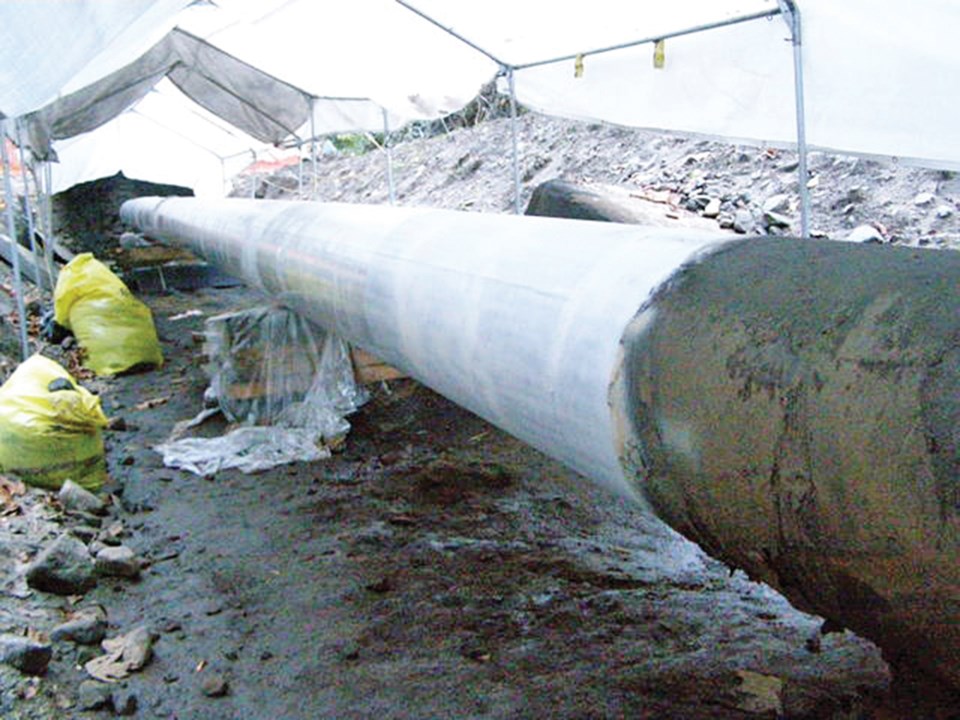Burnaby South MP Kennedy Stewart says he thinks the Kinder Morgan pipeline will be approved and Premier Christy Clark will support it once the provincial election has passed.
“I think there is a deal between (Prime Minister Justin) Trudeau and Christy Clark. I know they are having all kinds of meetings all the time,” said the NDP member of Parliament. “Premier Clark was here in Ottawa a lot in the last session. I know there are weekly meetings happening about this.”
Kinder Morgan needs federal approval to proceed with the pipeline, and the province has to grant permits as well.
“So if Trudeau approves it in December, that means the only thing stopping it from proceeding is Christy Clark saying it can go ahead – her cabinet saying, ‘Yes, we approve this project.’ I don’t think she’ll want to do that before an election,” said Stewart. “I’ve actually heard this from people who are negotiating, First Nations who are negotiating, is that Christy Clark has agreed that the pipeline will go ahead, as long as the Liberals delay the process until after the provincial election.”
Stewart said he talks with First Nations groups, ENGOs and industry insiders and has heard this idea from a couple of these sources, and that they would be party to these pipeline negotiations.
“There are all kinds of negotiations going on, lawyers talking to one another, and what I know through watching this process since 2011, being involved in it, often you get a signal that a change is coming, and it’s almost always right. Once you hear it from two or three different people that don’t know each other, you think, Oh, this is coming.”
Clark’s office, however, rejected any such notion and reiterated the province’s five conditions that must be met before B.C. approves anything.
"Since Premier Clark announced the five conditions in 2012 at the Council of Federation meeting in Halifax, British Columbia's position has remain unchanged: no heavy oil pipelines can proceed without those conditions being met,” reads an emailed statement from her office. "In the case of the Trans Mountain proposal, the province was clear in its submission to the National Energy Board that it did not meet the five conditions and, as such, we could not support the project at this time. The five conditions have always been a path to yes, if they can be met. The proponents believe they can conform with the conditions and are welcome to work towards that. As well, since introduction of the conditions the federal and Alberta governments have accepted them. The government has been very clear in our position over the last four years, and nothing has changed."
In January, the provincial government came out against the pipeline in its final argument for the National Energy Board hearing, citing a lack of information on oil response plans as a reason. Since then, B.C.’s Energy Minister Bill Bennett said the province isn’t opposed to pipelines and there’s been progress on the five conditions with respect to Kinder Morgan's proposal.
B.C.’s conditions five conditions: (Source, B.C. government)
- Successful completion of the environmental review process. In the case of the Northern Gateway Pipeline, that means a recommendation by the National Energy Board Joint Review Panel that the project proceed.
- World-leading marine oil-spill response, prevention and recovery systems for B.C.'s coastline and ocean to manage and mitigate the risks and costs of heavy-oil pipelines and shipments.
- World-leading practices for land oil-spill prevention, response and recovery systems to manage and mitigate the risks and costs of heavy-oil pipelines.
- Legal requirements regarding Aboriginal and treaty rights are addressed, and First Nations are provided with the opportunities, information and resources necessary to participate in and benefit from a heavy-oil project.
- British Columbia receives a fair share of the fiscal and economic benefits of a proposed heavy-oil project that reflects the level, degree and nature of the risk borne by the government, the environment and taxpayers.



